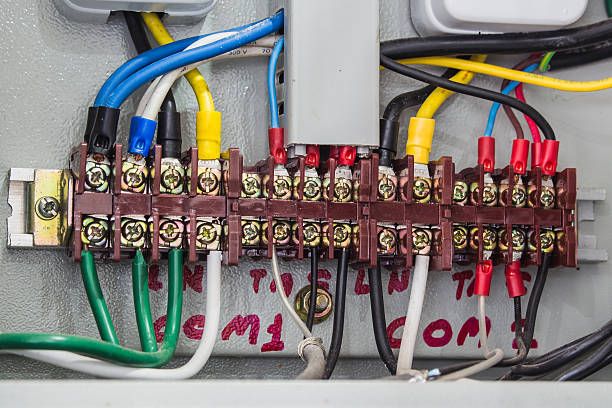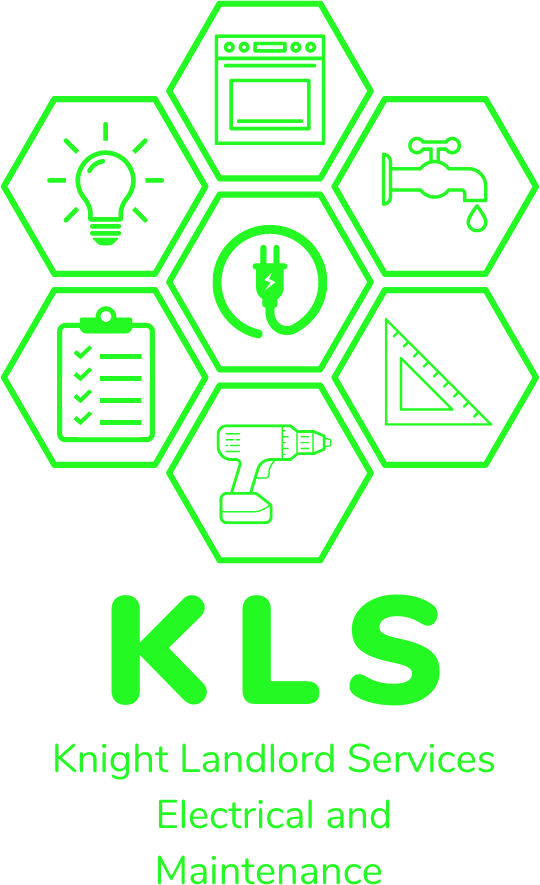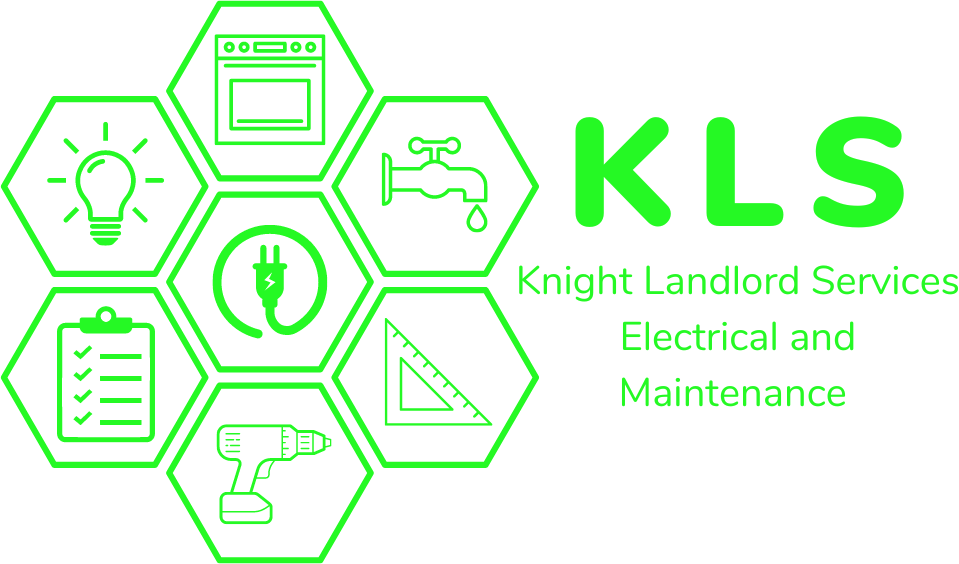Fuse boards and re-wires in Chichester new-builds are essential parts of your home’s electrical safety system. Even in brand-new homes, the fuse board (also called a consumer unit) controls the electricity in the house and protects against overloads, while rewiring ensures all electrical circuits are safe and working properly. Many people assume new-builds are flawless, but that’s not always true when it comes to the electrics.
A fuse board is what stops electrical faults from turning into serious problems. It contains fuses or circuit breakers that trip when something goes wrong, cutting off power to prevent fires or electric shocks. A re-wire refers to replacing or properly installing the wiring throughout the home. In some new-builds, poor installation or shortcuts taken during construction can leave homeowners with hidden problems.
This article is written for people searching things like:
- Do I need to check my fuse board in a new-build?
- Are re-wires needed in a brand-new home?
- What should I check first before moving in?
These are all very fair questions. The truth is, fuse boards and re-wires in Chichester new-builds still need to be checked for safety, quality and proper installation. This is even more important if you’re a landlord planning to rent the property out.
In this guide, we’ll show you what to look out for, what needs checking first, the warning signs of electrical problems, and how to get everything checked properly and quickly. Whether you’re moving into your own home or managing a rental, this could save you stress, money, and even protect lives.
Why New-Builds Still Need Fuse Board Checks And Re-wire Inspections
Many people believe that a new-build home is automatically safe and doesn’t need much checking. However, fuse boards and re-wires in Chichester new-builds can still have problems that aren’t obvious until you move in. Just because a house is new doesn’t mean the electrical work is perfect.
In some cases, builders may have rushed the job to meet deadlines. This can lead to small but serious issues like loose wiring, missing safety labels, or wrongly fitted components in the fuse board. These might not show up until appliances trip the power or lights flicker. You might also notice strange buzzing sounds from sockets or the fuse board itself. These are all signs something might not have been done properly.
Even when builders follow the rules, things can be missed. Electrical work is often done in stages and by different people, so mistakes can slip through. It’s also worth noting that not all new-builds come with full re-wires or the latest fuse boards. Some developers may use basic units or leave things out that are needed for long-term safety, like surge protection or properly labelled circuits.
If you’re a landlord, the risks are even higher. You’re responsible for the safety of your tenants. If an electrical issue causes harm, you could face legal trouble. An Electrical Installation Condition Report (EICR) is required by law for rentals, and a fuse board or re-wire that hasn’t been done properly will fail the test.
Even for homeowners, it’s better to catch problems early than wait for something to go wrong. Electrical faults can cause fires, power outages, and expensive repairs. A simple check by a qualified electrician can put your mind at ease and confirm that everything is safe and up to standard.
So while it might seem unnecessary to check the electrics in a brand-new property, the truth is it’s one of the most important things you can do. Fuse boards and re-wires are too important to ignore, even in new homes. Spending a little time and money now could save you from a lot of stress later.

Fuse Boards And Re-wires In Chichester New-Builds: What To Check First
When it comes to fuse boards and re-wires for Chichester new-builds, knowing what to check first can save you a lot of stress and money. Even though the property is brand new, don’t assume everything has been done properly. Some faults won’t show until appliances are plugged in, or until the system is under pressure. A quick check before moving in or letting the property out is always a smart move.
1. Start with the Fuse Board (Consumer Unit)
The fuse board is the heart of your home’s electrical system. Open the cover and check that all circuits are clearly labelled. Each switch should say what it controls (e.g. kitchen sockets, lights upstairs, boiler). If it’s blank or unclear, that’s a sign the job may have been rushed.
Next, check that it includes RCDs (Residual Current Devices). These trip the power when there’s a fault, helping prevent shocks and fires. In modern fuse boards, there should be at least one RCD, but ideally, you’ll see RCBOs – these protect individual circuits and offer better safety.
Also, look for surge protection. This is becoming more common in new installs, and it helps protect appliances from voltage spikes. It’s especially useful if the area has frequent power cuts or lightning.
2. Visual Checks Around the Home
Walk around and check every socket and switch. Are they straight and firm, or wobbly and poorly fitted? Test a few by plugging something in. Flick the lights on and off. Check for buzzing sounds, flickering, or discolouration. These small signs often point to wiring problems.
3. Ask for the Electrical Certificate
Every new-build should come with a certificate confirming that the electrical work has been tested and signed off. This is known as a Part P certificate or an Electrical Installation Certificate. If you don’t have one, request it from the builder. If they can’t provide it, book your own inspection straight away.
By checking these things first, you can avoid unexpected faults, fix issues before they become dangerous, and make sure your new-build home is as safe as it looks. Whether you’re living in the property or planning to rent it out, these checks give you peace of mind from day one.
Red Flags To Look Out For Before You Move Into A New-Build
Even brand-new homes can have hidden electrical problems. Before moving in, it’s important to spot warning signs that something isn’t quite right. When it comes to fuse boards and re-wires in Chichester new-builds, these red flags can help you catch faults early and avoid bigger problems down the line.
1. Tripping Circuits Without Reason
If your power cuts out when using common appliances like a kettle, microwave, or hoover, this could mean the wiring or fuse board isn’t handling the load properly. Frequent tripping is a clear sign that something might be faulty or overloaded.
2. Flickering Lights or Buzzing Sockets
Lights that flicker or hum might seem like a small issue, but they often point to loose wiring or poor connections. Similarly, if you hear buzzing near a plug socket or switch, that’s a warning something is wrong behind the wall.
3. Overheating Plug Sockets
Touch your plug sockets after using them. If they feel warm or hot, this could mean the wiring is poor or the socket is not installed properly. Overheating can lead to melting, smoke or worse – a fire.
4. Messy or Unfinished Fuse Board Area
When you look at the fuse board, everything should be neat and clearly labelled. Wires should be tidy, and there should be no loose connections or dangling cables. If it looks rushed or messy, that’s a big concern.
5. Lack of Certificates or Missing Documentation
Every new-build should have a full set of documents showing that the electrics were installed and tested by a qualified electrician. If the builder or developer can’t give you an Electrical Installation Certificate or Part P compliance certificate, that’s a red flag. It might mean the work was never properly tested or signed off.
6. Sparks or Burning Smells
If you notice a spark when you plug something in, or smell burning near sockets or switches, switch off the power and call an electrician immediately. These are serious signs that the wiring could be faulty or dangerous.
Spotting these red flags early will help protect your property and your family. Fuse boards and re-wires for Chichester new-builds should be clean, safe and up to modern standards. If anything feels off, don’t wait, get it checked right away.

Who Should You Call? How To Get Professional Checks Done Fast
When it comes to fuse boards and re-wires in Chichester new-builds, having a trained professional carry out checks is the safest way to make sure everything is working as it should. Even if the house is new, only a proper inspection can confirm that the electrical work is safe, legal, and up to standard.
1. Why You Need a Qualified Electrician
Only a qualified electrician has the tools and knowledge to properly test your fuse board and wiring. They’ll know what to look for, what standards to follow, and how to spot hidden problems that might be missed in a general walkaround. If you’re a landlord, hiring someone who’s registered with NICEIC or NAPIT is even more important, as legal inspections must be carried out by someone who is fully qualified.
2. What To Expect During an Inspection
A professional electrician will:
- Open up the fuse board to check the layout, labels, RCDs, and connections
- Test the circuits to check for faults or signs of overloading
- Check sockets, switches, and wiring across the property
- Look for signs of heat damage, loose wires, or poor installation
- Provide a full report of what’s been tested, what passed, and what needs fixing
If problems are found, they will give you a clear breakdown of what needs to be done and how long it will take. Most repairs or upgrades can be handled within a day or two.
3. How Soon Can It Be Done?
Many electricians in Chichester offer same-day or next-day appointments, especially for new-build buyers or landlords needing quick turnarounds. The earlier you book, the more choice you’ll have with dates and times. Try to avoid last-minute requests, especially if you need the work done before moving in or letting the property.
4. What Should You Ask Before Hiring?
To make sure you’re hiring the right person:
- Ask for proof of qualifications and insurance
- Check they are registered with a recognised trade body (like NICEIC or NAPIT)
- Get a written quote before work begins
- Ask how long the inspection or rewire will take and what’s included
By calling the right professional early, you’ll avoid costly surprises and keep your new-build safe and fully compliant. Let the experts take care of it properly from the start.
Why Getting A Professional Check First Is Always Recommended
After working with many new-build homeowners and landlords, I can confidently say that checking fuse boards and re-wires in Chichester new-builds should never be skipped. Just because a home is brand new doesn’t mean it’s free from faults. I’ve seen perfectly painted rooms hiding loose wires, fuse boards without proper labels, and switches that trip for no clear reason. These problems don’t just cause stress – they can be dangerous.
Whether you’re buying a new-build for yourself or planning to rent it out, getting the electrics checked by a qualified professional is one of the best decisions you’ll make. It gives you peace of mind, proves everything is safe, and protects you from sudden repair bills later on. In the case of rentals, it also helps you meet legal safety standards.
At Knight Landlord Services, we specialise in electrical checks for new-builds, including full inspections of fuse boards and wiring systems. We know what to look for, how to spot rushed installations, and how to fix issues quickly. We work with both homeowners and landlords, offering reliable, affordable service with fast turnarounds and full certification.
If you’ve just purchased a property or are about to move tenants in, don’t take chances with the electrics. Call Knight Landlord Services today on 07413 69 44 39 and let us carry out a professional inspection that gives you total confidence in your new-build. We’ll make sure your fuse board and wiring are not just new, but safe.




